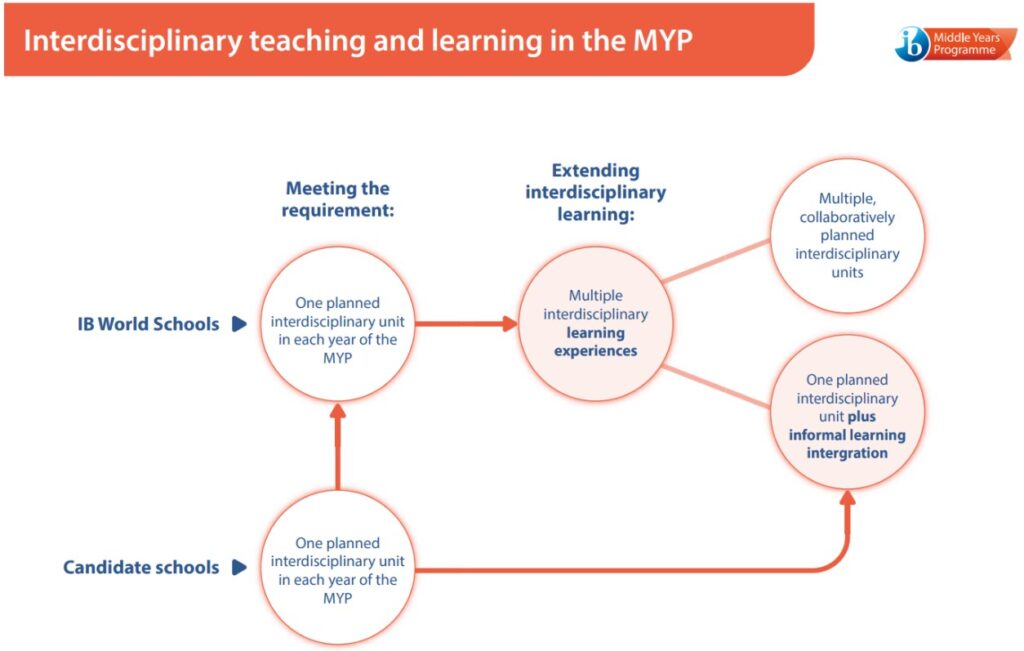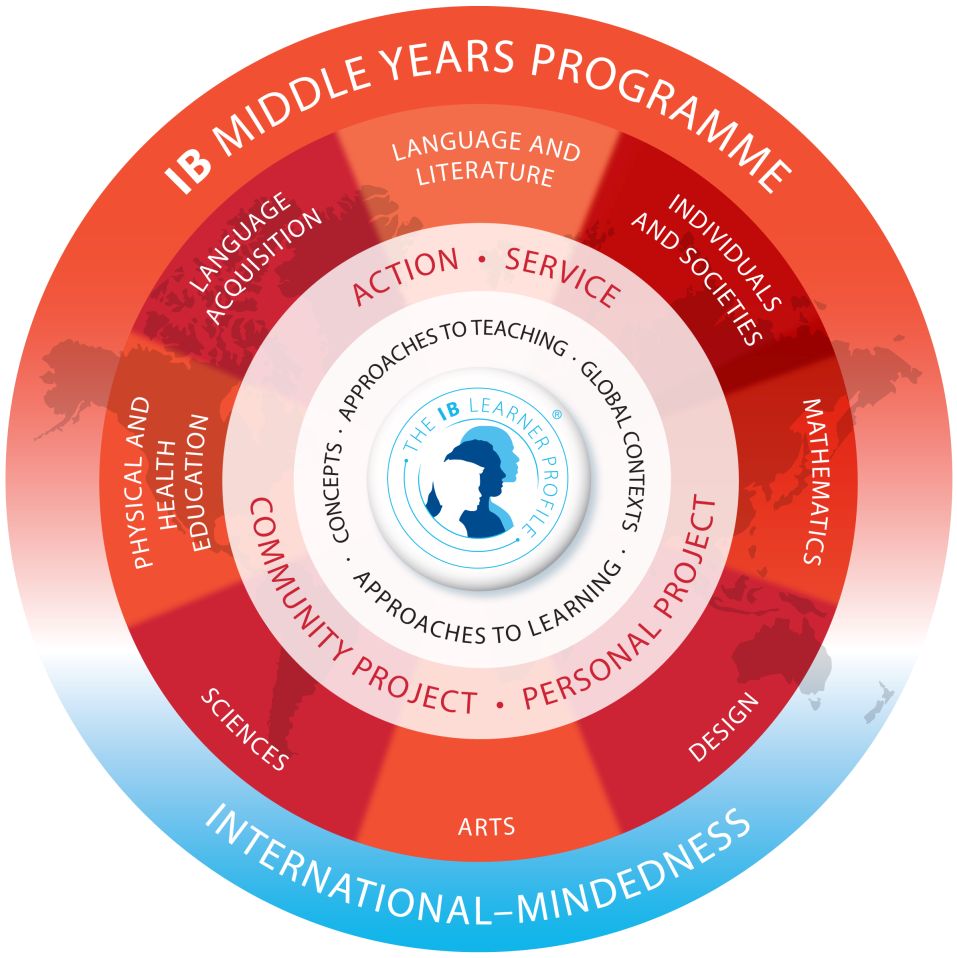What is Interdisciplinary Learning?
One of the key features of the MYP is its emphasis on interdisciplinary teaching and learning. This trait emerges from the challenges and opportunities of educating students in, and for, a highly interconnected world. Younger learners often do not naturally make connections between knowledge domains to understand the world around them—in some cases, because they have not yet been socialised into the disciplinary perspectives that organise the academic world. Although secondary education usefully organises learning into disciplinary compartments (as a response to increasing specialisation), an ever-changing world also demands education that empowers people to integrate disciplines in novel and creative ways. As knowledge and information multiply, critical thinkers must successfully integrate disciplinary perspectives to understand real-world issues, ideas and challenges, and to take action to promote positive changes in societies.
Four main elements capture what interdisciplinary learning is.
-
The integration of subject-specific knowledge and synthesis of understanding.
-
The idea that the subjects of this synthesis must be drawn from multiple, bounded, identifiably different areas of knowledge (usually labelled with the traditional term “disciplines” or “subjects”).
-
That the conceptual definition of interdisciplinarity almost always includes some notion of utility—a need to identify a reason for seeking such a synthesis.
-
Most importantly, from the student’s perspective, that interdisciplinary learning must have a clearly articulated purpose that structures the “learning space” of the students—in terms of the contribution of disciplinary knowledge, the synthesis achieved and the interdisciplinary understanding developed. Students need to be aware of why they are doing an interdisciplinary unit and what they are expected to know, understand and do or create from the beginning of the unit.


Curriculum integration in the MYP
The programme model of the MYP places the learner at its centre. This underscores the IB’s belief in educating the whole person, and it places importance on student inquiry. The eight subject groups ensure a balanced and varied learning experience. Each subject group has its disciplinary foundations and its own shared methodologies and perspectives. Approaches to teaching and learning, concepts and global contexts are reflected as central elements of the programme that guarantee a “common language” for all subject groups and enable interdisciplinary connections across disciplines. These elements establish meaningful connections between what students learn inside the classroom and the world beyond. Contexts and concepts are essential components for promoting holistic learning.
This year, the IDUs are varied and allow students across all years of the MYP to explore links between subject areas through inquiry based learning.
For 2024-2025 the IDUs are as follows:
| Learning areas | Year group | Statement of Enquiry | Module |
| Mathematics/ Physical and Health Education | 7 | Athletics data such as times and distances can be analysed to solve a variety of mathematical problems | 5/6 |
| Individuals and society/ Science | 8 | A successful infrastructure relies on balanced relationships | 6 |
| Language and literature/ Languages | 9 | Examining how power, persuasion, and cultural context shape individual actions and societal consequences | 4-5 |
For further information of any queries, please contact: lisa.bodle@sgla.latrust.org.uk




